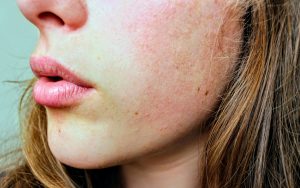Skincare
Skincare is the practice of taking care of and promoting the health and looks of the skin. It includes cleansing, hydrating and protection against the sun and managing conditions such as acne and dryness. they help to prevent infection and irritation and is an integral part of daily hygiene.
They differ from dermatology by its existence of non-physician practitioners such as estheticians and nursing staff. It involves alterations in individual behavior and working and environmental conditions. It is an important part of wound healing, radiation therapy, and drug administration.
The skin is the body’s biggest organ. It guards against germs, soil and other harmful chemicals. Basic routines such as washing and moisturizing have a profound effect on skin condition, but much is unknown from a scientific point of view concerning the advantages and clinical effectiveness of these regimens. Skincare practices, including in hospitals and clinics, depend more on faith, personal belief, and what is available or customary in one’s environment rather than up-to-date evidence and best practices.

Diet
Grooming one’s general health benefits one’s complexion, like concern with diet and lifestyle. Stress is known by most to contribute to the aging of the skin. Proper hydration from water can perhaps maintain healthy hydration in the skin, particularly among chronically dehydrated people. An inadequate diet without vitamins contributes to skin disease including scurvy, pellagra and a multitude of subclinical pathologies not thoroughly studied. Sleep deprivation has been found to exacerbate conditions such as atopic dermatitis, eczema, and psoriasis, and these conditions have also been found to decrease sleep quality.
Products
The products clean, protect and enhance the skin. In America, the Federal Food, Drug and Cosmetic Act classifies these products under two broad categories cosmetics and drugs. Drugs undergo a rigorous approval process before being sold. Cosmetics, do not require FDA approval prior to being sold, though they are also regulated. Cosmetics are employed to clean or beautify such as face washes, and moisturizers.
Routine
Skincare treatments involve applying one or more products to areas of the skin in a certain order. A skincare routine can include the following steps
Cleansers take away dirt, oil and impurities from the skin. Their application may involve washing with water or may be in soapless or no-rinse form. Exfoliation removes dead skin cells and stimulates cell turnover. It is accomplished with either physical exfoliants scrubs or chemical exfoliants AHAs and BHAs. Exfoliation must not be done excessively to avoid irritation.
Toners balance the pH of the skin and get it ready for moisturizing. They can have added benefits like hydration, calming or preventing acne.
Specialized items such as serums masks and eye creams have active ingredients to treat certain skin issues.
Moisturizing retains water and preserves the skin natural protective barrier. Various formulas are available for various skin types including lightweight gels for oily skin and rich creams for dry skin.

Skincare by age
Neonate
Standards for neonatal skin care have been established. However, the pediatric and dermatologic communities have not come to an agreement on optimal cleansing methods, since good quality scientific evidence is limited. Water immersion appears to be better than washing alone and the use of synthetic detergents or mild liquid baby cleansers appears to be similar or better than water alone.
Children
Dermatologists typically advise children to wash their skin with a gentle cleanser apply a moisturizing lotion if they need it and use sunscreen daily.
Teenagers
Complicated skincare routines are being advocated on social media sites like TikTok. This has resulted in kids and adolescents applying harsh and inappropriate products including anti-aging products. Which are of no use to youth skin and are potentially dangerous. It has also motivated kids and adolescents to use sunscreen daily.
Elderly
Aging skin is correlated with heightened susceptibility of the skin and skin color and texture can become different as one gets older. Even though wrinkles do appear naturally through the process of aging, the process of smoking will amplify wrinkles visibility. Dryness, melanomas, sunspots and wrinkles are effects of cumulative exposure to the sun or sunbeds over a period. Cumulative UV exposure makes skin inelastic. Skin conditions such as pruritus are prevalent among the elderly but are poorly treated.
A review of the literature on studies investigating the preservation of skin integrity in the elderly revealed that all but one study had low evidence levels, but the review determined that skin-cleansing with amphoteric surfactants or synthetic detergents caused less dryness of the skin than cleansing with soap and water. Humectant moisturizers improved skin dryness and skin occlusive barrier reduced skin injury. When showering or bathing, warm water can help with dryness instead of hot water.
Young vs old skin
There is not much evidence that water soak, oil soak and lotion soap bar combinations moisturized are effective in preserving the skin integrity of older individuals compared to usual care.

Specific skin concerns
Sun protection
While the sun is good for the human body to receive its daily vitamin D dose, unprotected excessive sun exposure can lead to severe damage to the skin. Ultraviolet UVA and UVB sun radiation can result in sunburn of different levels, premature aging and enhanced skin cancer risk. Exposure to UV can result in patches of irregular skin tone and dehydrate the skin. It can lose skin elasticity and promote sagging and wrinkles.
Sunscreen has the ability to prevent sun damage sunscreen must be applied a minimum of 20 minutes prior to exposure and is to be applied again every four hours. Sunscreen must be applied to any skin that is exposed to sunlight and 25 ml minimum must be placed on each extremity, face, chest and back for full coverage. Most tinted moisturizers, foundations and primers today have some type of SPF. Sunscreens can be creams or lotions. Their SPF rating reflects how well they protect the skin from the sun rays. There are sunscreens to fit all skin types.
Skin irritability and sensitivity
Using a moisturizer twice daily might fortify the skin natural barrier but its success relies on the type of moisturizer. Even on healthy skin moisturizers can prevent damage from things that would otherwise irritate. Dexpanthenol 2.5% or 5% is found to lower irritation. Gentle, fragrance-free, and hypoallergenic products are commonly used for sensitive skin.
Oily skin
Healthy sebaceous glands secrete a substance known as sebum, a wholesome natural skin lubricant. When the skin secretes too much sebum, it becomes heavy and thick in texture or oily skin. The oily-skin type is not necessarily evil as such skin is less likely to wrinkle or other aging signs because the oil prevents needed moisture from escaping the epidermis outermost layer of skin.
The downside to the oily skin type is that oily skin is particularly prone to clogged pores, blackheads and the accumulation of dead skin cells on the outer layer of the skin. Oily skin may be sallow and have a rough texture and tend to have large prominent pores all over except near the eyes and neck.
